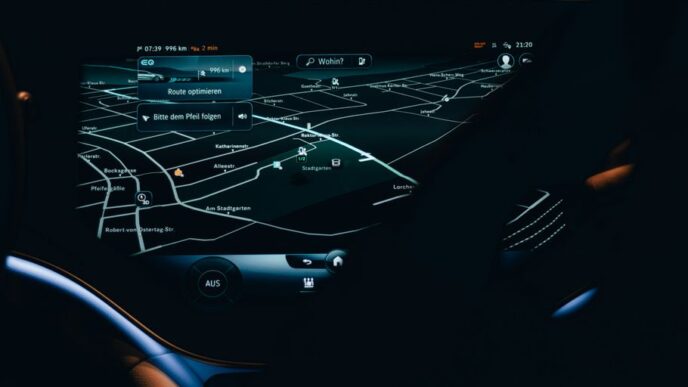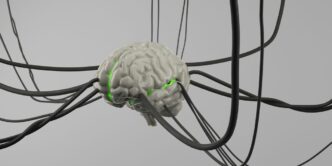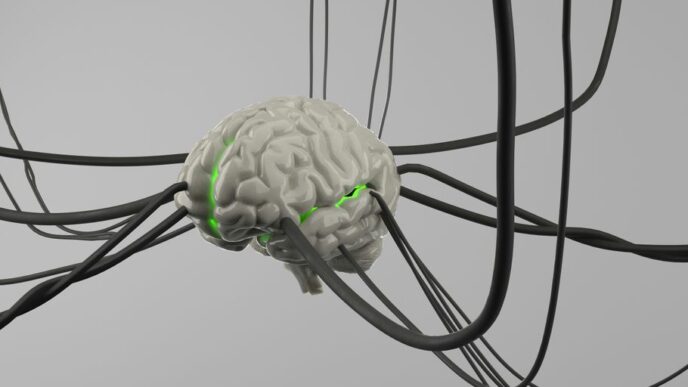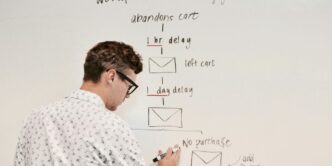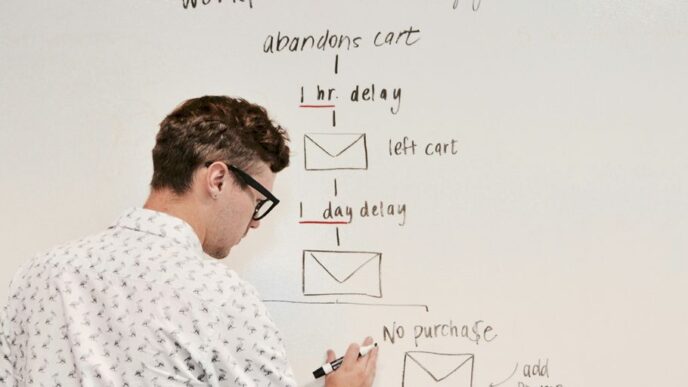Looking ahead to 2025, businesses are gearing up for a year of exciting changes and opportunities. From breakthroughs in sustainability to cutting-edge tech trends, the way we work and interact with consumers is evolving fast. Whether you’re a seasoned entrepreneur or just starting out, staying informed on these shifts can give you a competitive edge. Let’s explore some of the most innovative business ideas shaping the future.
Key Takeaways
- Sustainability is becoming a must-have, with eco-friendly products and circular economies leading the charge.
- Generative AI and hyper-personalization are reshaping industries, offering smarter, tailored solutions.
- Emerging markets, like Tier 2 cities, are turning into hotspots for business growth and innovation.
Sustainable Innovations Transforming Business in 2025
The Rise of the Circular Economy
The circular economy isn’t just a buzzword anymore—it’s becoming a real game-changer. Businesses in 2025 are rethinking how they design, produce, and dispose of products. Instead of the old take-make-waste model, companies are closing the loop. Here’s how:
- Recycling and Upcycling: Brands are finding ways to reuse materials, turning old products into something entirely new. Think shoes made from recycled ocean plastics or furniture crafted from reclaimed wood.
- Product-as-a-Service: Instead of selling items outright, companies are offering rental or subscription-based services. For example, instead of buying a washing machine, you could subscribe to one, and the company handles maintenance and upgrades.
- Repairability: Products are being designed to last longer, with easy-to-replace parts. This reduces waste and builds customer loyalty.
Eco-Friendly Product Lines and Their Market Impact
Consumers are speaking with their wallets, and they’re loud and clear—they want eco-friendly options. In 2025, businesses are stepping up with greener product lines. Here’s what’s trending:
- Waterless Products: From beauty products to cleaning supplies, waterless options are cutting down on waste in production and shipping.
- Biodegradable Packaging: Say goodbye to single-use plastics. More companies are switching to materials that break down naturally.
- Carbon-Neutral Goods: Some brands are even going a step further, offsetting their carbon emissions entirely to appeal to environmentally-conscious buyers.
Sustainability as a Core Business Strategy
Sustainability isn’t just a side project anymore—it’s baked into the core of how companies operate. In 2025, businesses are seeing it as a long-term strategy for growth. Here’s what’s happening:
- Renewable Energy Integration: Companies are powering their operations with wind, solar, and other renewable sources. It’s not just good PR—it’s cutting costs in the long run.
- Ethical Supply Chains: Transparency is key. Businesses are working to ensure that every step of their supply chain, from raw materials to finished goods, meets ethical and sustainable standards. For example, China’s focus on high-tech logistics hubs is helping bring transparency to global supply chains.
- Employee and Community Engagement: Sustainability isn’t just about the environment. Businesses are involving their employees and local communities in their green initiatives, creating a ripple effect of positive change.
The Role of Technology in Shaping 2025 Business Models
Generative AI and Its Expanding Applications
Generative AI isn’t just about creating art or writing anymore. In 2025, businesses are using it to solve real-world problems. Retailers are deploying AI to predict shopping trends, while healthcare providers are leveraging it for advanced diagnostics. Even small businesses are tapping into generative AI for personalized marketing campaigns. Countries like China and Germany are leading the charge, investing in custom AI systems that give them a competitive edge. The key takeaway? AI is no longer optional—it’s a necessity.
Hyper-Personalization Across Industries
Mass production is fading into the background as consumers demand products and services tailored just for them. Companies are using data analytics and AI to understand their customers better. For example:
- E-commerce platforms recommend products based on browsing and purchase history.
- Wearable health devices provide real-time insights, helping doctors create custom treatment plans.
- Streaming services suggest content based on your viewing habits, down to the smallest detail.
This shift toward hyper-personalization isn’t just a trend—it’s becoming the standard.
The Integration of AI in Everyday Business Operations
AI is no longer confined to tech giants. In 2025, even small businesses are integrating AI into their daily operations. Cloud-based tools make it easy to scale without heavy upfront costs. AI-driven platforms are helping businesses manage inventory, optimize supply chains, and even automate customer service. For instance:
- Chatbots handle basic customer queries, freeing up human employees for more complex tasks.
- Predictive analytics tools help businesses anticipate market changes and adjust strategies accordingly.
- AI-powered HR systems streamline recruitment, matching candidates to roles more efficiently.
The bottom line? AI is reshaping how businesses operate, making them faster, smarter, and more responsive to change.
Emerging Consumer Trends Redefining Commerce

The Shift Towards Hyper-Personalized Experiences
Consumers are no longer satisfied with one-size-fits-all products and services. They expect businesses to know their preferences, anticipate their needs, and tailor offerings specifically for them. Personalization has moved beyond just addressing customers by name in emails—it’s about creating meaningful, relevant interactions at every touchpoint. Businesses are using tools like AI-driven analytics to understand purchasing patterns, preferences, and even behaviors. For example:
- Retailers are offering curated shopping experiences based on past purchases.
- Streaming platforms suggest hyper-specific content tailored to individual tastes.
- Hospitality businesses are designing travel packages that align with unique customer interests.
The key takeaway? If you’re not investing in personalization, you risk losing customers to competitors who are.
The Growing Demand for Ethical and Sustainable Brands
Shoppers in 2025 are more mindful about the impact of their purchases. They’re asking questions like: Where was this made? Who made it? Is it environmentally friendly? Brands that can’t answer these questions—or worse, don’t align with ethical practices—are losing ground. Consumers want transparency and accountability. Here’s what’s trending:
- Products made with sustainable materials, like recycled fabrics or biodegradable packaging.
- Brands that publicly share their commitment to fair labor practices.
- Companies actively reducing their carbon footprint and supporting environmental causes.
If your business isn’t already embracing sustainability, now’s the time to start. It’s no longer just a "nice-to-have"; it’s a necessity.
Health and Wellness as a Business Priority
Wellness isn’t just a buzzword anymore—it’s a lifestyle. Consumers are prioritizing their mental and physical health, and they’re seeking out products and services that help them live better. This shift is creating opportunities across industries:
- Food and beverage companies are developing healthier options, like plant-based or low-sugar products.
- Fitness brands are integrating tech, such as wearable devices and virtual training programs.
- Mental health services, from apps to therapy platforms, are seeing a surge in demand.
Businesses that can align with this wellness movement are not only meeting consumer expectations but also building lasting loyalty. It’s about showing you care about their well-being, not just their wallets.
Opportunities in Regional Markets and Niche Sectors

The Rise of Tier 2 Cities as Business Hubs
Tier 2 cities are stepping into the spotlight as emerging business hubs. These smaller cities offer a unique mix of affordability, untapped markets, and a growing pool of skilled professionals. For entrepreneurs and businesses, this means lower operating costs and access to new consumer bases. Cities like Jaipur and Kochi, for example, are making waves. Jaipur is attracting IT, healthcare, and education ventures, while Kochi is thriving in logistics and startup ecosystems thanks to its port infrastructure. If you’re looking to expand or start fresh, these cities might just be the golden ticket.
Niche Markets Driving Innovation
Sometimes, thinking small can lead to big opportunities. Niche markets—those smaller, specialized segments—are becoming hotbeds for innovation. Whether it’s eco-friendly products, personalized health solutions, or even unique subscription services, these niches cater to highly specific needs. And the best part? When you focus on a niche, you can build a loyal customer base that values your expertise. For example, sustainable fashion brands and reusable household products are thriving because they meet growing consumer demand for ethical and practical solutions. If you’ve got a unique idea, now’s the time to carve out your space.
Leveraging Local Talent for Global Impact
Local talent isn’t just about filling jobs—it’s about building something bigger. In regional markets, there’s a wealth of untapped potential in the workforce. By investing in local skills and creating training programs, businesses can not only meet their own needs but also contribute to community growth. Plus, when you combine local talent with global strategies, you get the best of both worlds. It’s a win-win: businesses can operate efficiently and communities benefit from economic growth. So, whether you’re in tech, manufacturing, or services, don’t overlook the power of local expertise.
Explore the exciting chances available in local markets and specialized areas. These opportunities can help businesses grow and reach new customers. If you’re interested in learning more about how to take advantage of these markets, visit our website for more insights and tips!
Wrapping It Up
So, there you have it—2025 is shaping up to be a year full of fresh opportunities and challenges for businesses. Whether it’s diving into AI, embracing sustainability, or tapping into niche markets, the key is to stay flexible and open to change. Trends come and go, but the ability to adapt and innovate is what really sets businesses apart. If you’re thinking about starting something new or leveling up your current venture, now’s the time to take those ideas and run with them. The future is closer than you think, and it’s waiting for you to make your move.




